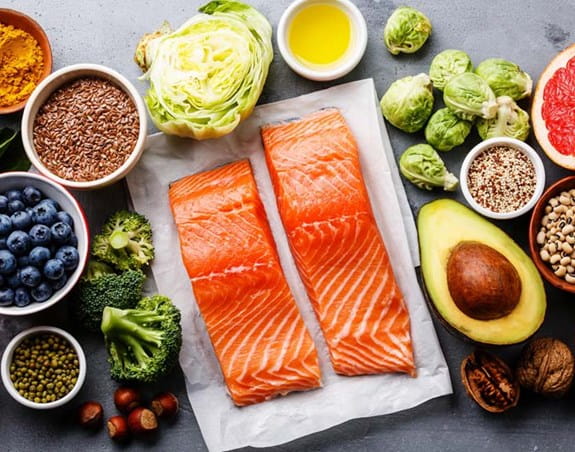The truth about fat
Fat, carbohydrates and protein are the 3 main nutrients that make up most of our diet. Everyone needs some fat in their diet. Fat is not the enemy of eating well.
The benefits of fat:
- It makes you feel full longer.
- It helps your body absorb certain vitamins.
- It adds taste and texture to food.

Fat and cancer
So far, research hasn’t given us a clear answer to whether certain types of fat increase cancer risk. But eating a diet high in fat may contribute to excess weight, which increases your risk of cancer, so it’s important to limit how much fat we eat.
Focus on healthy fats
What are the different types of fat?
Unsaturated fats are found in:
- avocados
- nuts and seeds
- non-hydrogenated soft margarines
- fatty fish like salmon or mackerel
- olive oil, corn oil, canola oil and sunflower oil
Saturated fats are found in animal sources of food such as meat, poultry, butter and cheese. They’re also found in coconut, palm and palm kernel oils. Foods like chocolate bars, ice cream and processed meats also contain saturated fat.
Trans fats occur naturally in small amounts in some animal products, such as meat, butter and cheese. Try to limit how much trans fat you take in and choose healthier fats more often instead. Trans fats used to be found in high amounts in foods such as crackers, potato chips and commercial baked goods that were made with or cooked in partially hydrogenated oils. These oils have been banned in Canada, but it’s still best to make these foods a once-in-a-while part of your diet.
Your trusted source for accurate cancer information
With support from readers like you, we can continue to provide the highest quality cancer information for over 100 types of cancer.
We’re here to ensure easy access to accurate cancer information for you and the millions of people who visit this website every year. But we can’t do it alone.
Every donation helps fund reliable cancer information, compassionate support services and the most promising research. Please give today because every contribution counts. Thank you.
